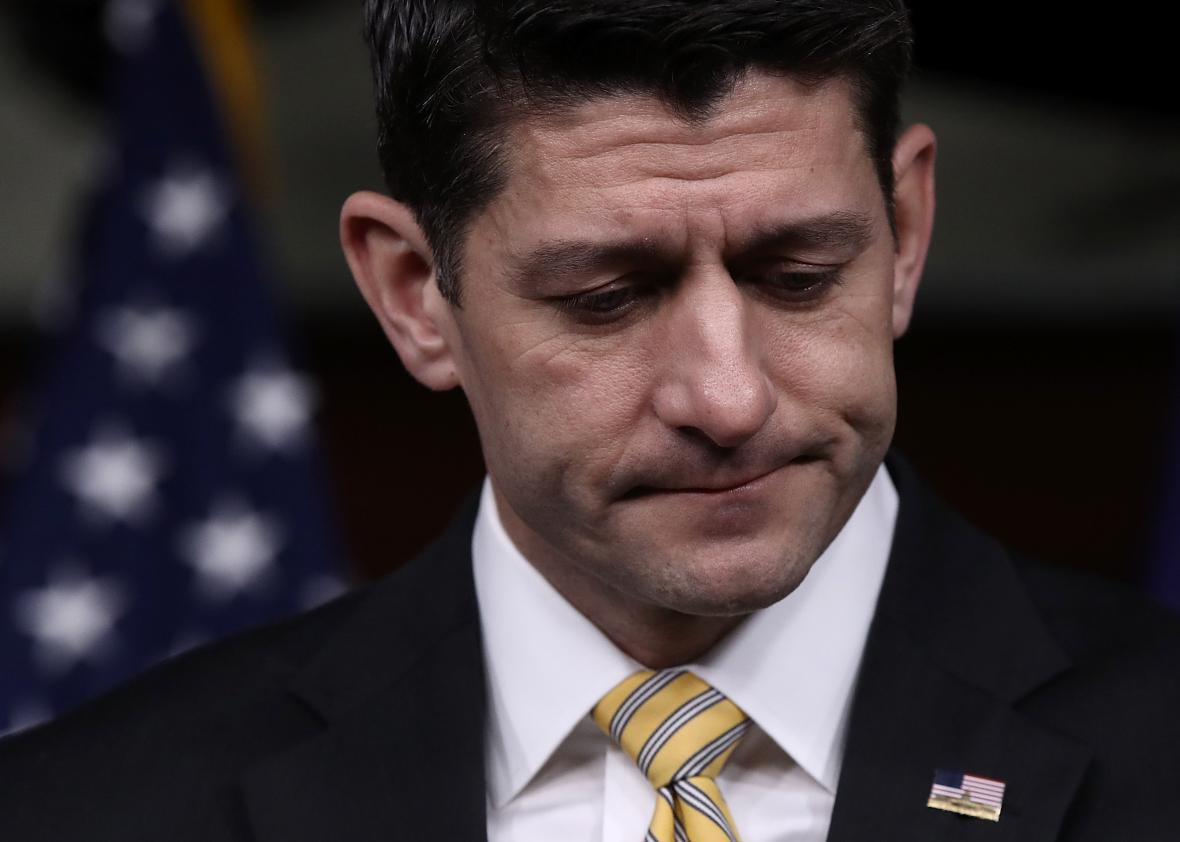Certain Republican members of Congress have decided they do not want to try to completely sweep under the rug the news that Attorney General Jeff Sessions met twice with the Russian ambassador during the course of the presidential campaign in contradiction to his sworn confirmation testimony. House Oversight Chairman Jason Chaffetz, most notably, has switched off his “nothing to see here” auto-reply to all questions regarding the Trump administration and called on Sessions to recuse himself from any Russian interference investigations. House Majority Leader Kevin McCarthy made a similar call earlier Thursday morning, before apparently getting in trouble and walking it back. There are others.
House Speaker Paul Ryan doesn’t think such judiciousness is necessary for Sessions, except in one very specific instance. “If he himself is the subject of an investigation, of course he would [recuse],” Ryan said in his weekly press conference Thursday. “But if he’s not, I don’t see any purpose or reason to doing this.” The only time that Jeff Sessions would have a conflict of interest is if Jeff Sessions were asked to investigate Jeff Sessions. Got it.
Sessions, as far as we know, is not the subject of investigations. (If he perjured himself in Senate testimony—as it very much appears he may have—that would change!) FBI Director James Comey has remained coy about what, exactly, is going on over there regarding investigations into the Trump campaign’s ties with Russia. The question, then, is whether Sessions should announce that he will keep his paws off of any investigations into Trump campaign connections with the Russian government. Democrats see that as a bare minimum—some like Minority Leader Nancy Pelosi are asking him to resign, and every Democrat on the House Judiciary Committee has called for a criminal investigation into Sessions’ testimony specifically. Some Republicans, including Chaffetz, see recusal as just the right response. Speaker Ryan, though, does not “see any purpose or reason to doing this.”
(Meanwhile, far out in the orbit of decorum-centric institutionalists, Sen. Orrin Hatch is furious that people are being mean to his friend.)
Ryan spoke of how commonplace it is for a member to meet with an ambassador. “I did a reception about 100 yards that way”—he pointed—“with like 100 ambassadors last year. I don’t even remember all the ones I met with, and took pictures with. It’s really common for members of Congress to meet with ambassadors.” It is. Which is why it was strange that Sen. Sessions, in response to both verbal and written questions during his confirmation, did not note his one-on-one meeting with the Russian ambassador when asked about whether he had any contacts with the Russian government.
Least convincing were Ryan’s arguments against a special prosecutor. “First of all, we don’t have that law,” he said. He’s right, Congress can’t appoint a special prosecutor. What they could do, though, is make a new law! It happens that there is a supposed “law-making” body within the very city where Ryan was delivering his press conference—same building, even—and Ryan himself happens to be a high-ranking member within it, some might say the “speaker” for said body. He could also just call on the administration to appoint a special prosecutor. He has done neither. The other excuse he leaned on was that any investigation has to protect the intelligence community’s sources and methods, so it must be done within the standing intelligence committees. But special prosecutors are also capable of managing classified information.
It’s heavy, the load that Ryan has chosen to carry for the Trump administration. But if that’s what it takes to get Donald Trump to say “tax credits” in a big speech to the nation, then Ryan is happy to oblige.
